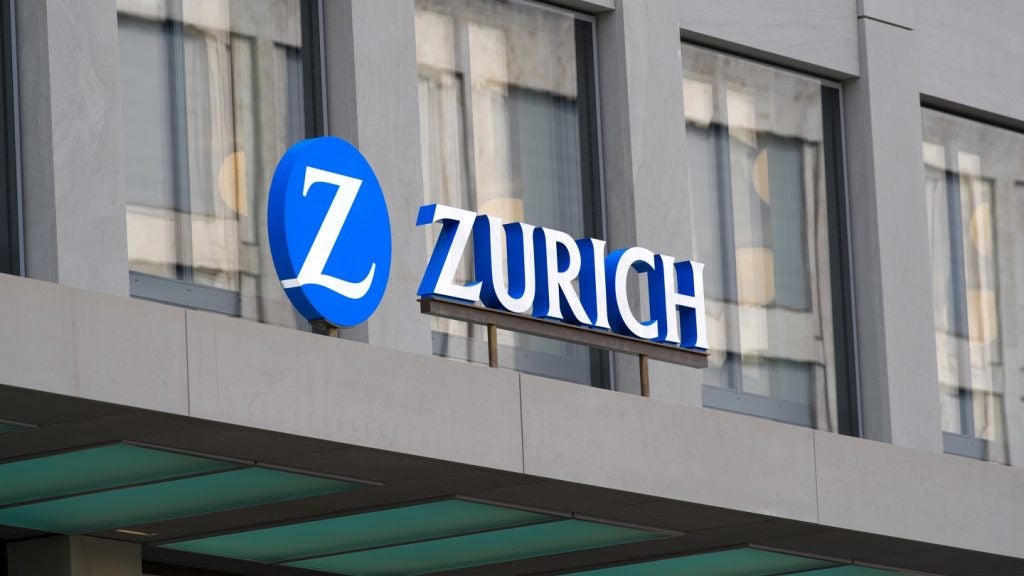New York Life reports soaring
sales…
UK longevity product specialist
calls it quits…
FSA triumphs in lifetime
ban hearing…
Mixed performance from China’s
Big Three…
ANNUITIES
New York Life reports soaring
sales
New York Life (NYL) held its
position as the leading provider of guaranteed lifetime income
annuities (immediate annuities) in the US for the third consecutive
year in 2008, and again appears to be the provider to beat in
2009.
NYL, also the largest mutual insurer in the
US, reported that sales of immediate annuities through both agents
and banks 2009 soared by more than 80 percent in the first quarter
of the year, compared with 2008’s first quarter.
“In this rough market, income annuity holders
take great comfort in a guaranteed, monthly paycheck that continues
throughout their lifetime, no matter what is happening in the
markets,” said NYL head of retirement income security Chris
Blunt.
How well do you really know your competitors?
Access the most comprehensive Company Profiles on the market, powered by GlobalData. Save hours of research. Gain competitive edge.

Thank you!
Your download email will arrive shortly
Not ready to buy yet? Download a free sample
We are confident about the unique quality of our Company Profiles. However, we want you to make the most beneficial decision for your business, so we offer a free sample that you can download by submitting the below form
By GlobalDataIn 2008, NYL reported total immediate annuity
sales of $1.2 billion up 55 percent compared with 2008. Of the 2008
sales, $850 million were through NYL’s career agency system and
$350 million through its partnered banks.
According to research and development
organisation LIMRA, total US immediate annuity sales in 2008
increased by 23 percent in 2008 to $8 billion in 2008. This gave
NYL a market share of 15 percent, up from 12 percent in 2007.
POLICY SERVICES
Lost policy location made
easy
Absence of a central database to
enforce life insurance policies in the US can make location of a
lost or missing policy a significant problem for legal
professionals handling deceased estates.
This problem can be alleviated in
almost a third of instances by a service offered by insurance
industry services provider MIB Solutions.
Key to the service is MIB’s database
containing over 170 million records representing life insurance
applications processed during the last 13 years. More than 10
million new records are added annually.
“MIB’s industry-wide database can report if an
insurer took a policy application for the individual and submitted
a query to our fraud detection service,” said MIB executive
vice-president Lee Oliphant.
“It is this activity that can help point the
way to the company or companies that might have issued a life
insurance policy.”
Oliphant added that since the service was
first launched on a limited scale in 2004, MIB has found
application activity on about 30 percent of inquiries. Cost of a
search is $75.
MIB member companies underwrite the vast
majority of individually underwritten life insurance policies in
the US and Canada.
COMPANIES
UK longevity product specialist
calls it quits
Marketing itself as the first
financial services company to focus exclusively on addressing the
financial issues arising from increasing longevity, UK insurer Life
Trust Holdings (LTH) has closed the door to new business little
more than a year since launching.
Closing down is LTH’s only operational unit,
Irish-based Life Trust Insurance, which has offered one product,
the Longevity Income Plan, to UK consumers via what LTH terms
“selected” independent financial advisers.
All policyholders will receive their original
investment plus an ex gratia payment. A recently launched second
product has no policyholders.
In a statement ,LTH said that as a result of
the UK being in “a very deep recession” the company’s growth will
be considerably slower than anticipated, requiring the raising of
additional capital from late-2009.
Despite exploring “a wide range of options” to
secure new funding it has not been possible to raise further
capital, noted LTH.
INDUSTRY TRENDS
Insurance job cuts continue
apace
Among a growing number of companies
in the insurance industry to announce major staff reductions are
the world’s largest reinsurer Swiss Re and the UK’s largest life
insurer Legal & General (L&G), a unit of Aviva, which
between them plan to shed more than 2,800 jobs.
The most significant job-shedding is by Swiss
Re which plans to reduce its headcount by about 10 percent, or some
1,150 employees as part of a strategy to cut costs by CHF400
million ($350 million) by the end of 2010
In number terms, staff reduction at L&G,
soon to be rebranded as Aviva, is somewhat larger: 1,100 permanent
and 590 contract positions. However, when seen against Aviva’s
total UK staff complement of over 28,400 it is a somewhat less
significant 6 percent reduction.
REGULATION
FSA triumphs in lifetime ban
hearing
The UK’s Financial Services
Authority (FSA) has emerged the victor in a case heard by the
Financial Services and Markets Tribunal in which Milan Vukelic
challenged the FSA’s decision to ban him from working in the UK’s
financial services industry for life.
In its judgment the tribunal upheld the FSA’s
view that Vukelic lacked integrity during his tenure as CEO of
Alternative Solutions (AltSol) between August 1997 and October
2002.
AltSol, a unit of US reinsurer General
Reinsurance Group, was established to develop and market finite
(financial) reinsurance products.
Setting out its reason for imposing the ban on
Vukelic, the FSA stated that as AltSol’s CEO he was responsible for
overseeing and structuring three different transactions designed to
allow client insurance companies to hide very significant losses in
their accounts.
Vukelic, stressed the FSA, knew the deals were
not genuine reinsurance transactions and they could be used to
mislead the insurers’ auditors.
Two of the three insurance companies
subsequently collapsed.
COMPANIES
Investors scramble for Generali
note issue
Despite tight capital market
conditions, Italian insurer Assicurazioni Generali has reported
completion of a notably successful capital raising exercise.
The issue of euro-denominated senior notes
maturing in November 2014 was confined to institutional investors
and was set at €750 million ($1 billion). The insurer reported that
as a result of strong demand for the issue it attracted an order
book of over €3 billion, some four times the issue size.
BNP Paribas, Mediobanca and UBS Investment
Bank acted as joint lead managers and bookrunners. The issue will
be listed on the Luxemburg Stock Exchange.
The note issue, which has a coupon yield of
4.875 percent will be used to refinance maturing group debt and
fully covers the issue that matures on 28 May, noted Generali.
LEGAL
A wave of directors and
officers liability claims hit insurers
Directors and officers liability
insurance (D&O) is proving to be another costly burden for
insurers as they face a wave of claims sparked by the global
financial crisis.
In the US alone, some 120 subprime
mortgage-related securities class actions have already been filed
resulting in D&O claims that could cost insurers almost $6
billion, according to Oscar Shub, a partner at Australian law firm
Allens Arthur Robinson.
“This trend in the US is bound to filter out
and we are likely to see it occurring in other economies, including
Australia and those in Asia,” warned Shub.
He added that the not only has the number of
D&O claims increased but also the targets for litigation.
New targets include accountants, appraisers,
analysts and other professionals who provided advice in connection
with the value of securities and derivatives, and risks associated
with such investments.
DEVELOPING MARKETS
ERGO hunts for new Indian
partner
ERGO Insurance Group is on the hunt
for a new partner to join it in the establishment of a life
insurance business in India following a decision by Indian
conglomerate HERO Group not to pursue a joint venture (JV)
agreement with the German insurer.
Under the agreement announced in May
2008, ERGO would have had a 26 percent stake in the JV and HERO the
balance.
Sunil Kant Munjal, chairman of Hero’s
corporate services unit, said recessionary conditions prompted the
decision not to pursue the JV.
“This decision also reflects the significant
capital outlays for the buildup of a life insurance business and
the long gestation period,” added Munjal.
Emphasising ERGO’s resolve to establish an
Indian life insurance business, Jochen Messemer, responsible for
international business in ERGO’s board of management, said: “We
believe that it is the right time to enter the Indian life market,
having in mind that several players are dealing with
difficulties.”
ERGO, the 91.7 percent-owned primary insurance
unit of German reinsurer Munich Re, entered India in 2006 with the
formation of a health insurance company, Apollo DKV Insurance in a
JV with Indian private hospital operator Apollo.
In 2007 ERGO acquired 16 percent stake in
general insurer HDFC General Insurance.
MERGERS AND ACQUISITIONS
Failed Japanese insurer finds a
buyer
Failed Japanese insurer Yamato Life
is to be acquired by US insurer Prudential Financial’s wholly-owned
Japanese unit Gibraltar Life Insurance (GLI).
Yamato, which has about 150,000
policies in force, filed for bankruptcy in October 2008 citing
steep declines in the value of high risk investments, including US
subprime mortgage-backed instruments, as the cause of its
insolvency.
Though the acquisition has no purchase price
consideration, GBL will inject ¥6.9 billion ($70 million) in new
capital into Yamato. In addition, ¥27.8 billion in support will be
provided by the Life Insurance Policyholders Protection
Corporation, a government-run body funded by Japanese life
insurers.
Following closure of the acquisition Yamato’s
name will be changed to Prudential Financial Japan Life (PFJ),
becoming Prudential’s third Japanese unit.
PFJ will focus on the bank distribution
channel.
REGULATION
India closes money laundering
loophole
In a bid to crack down on money
laundering India’s Insurance Regulatory and Development Authority
(IRDA) that payment of premiums in cash should must not exceed
INR50,000 ($1,000).
For premiums of more than INR50,000
payment can now only be accepted through cheques, demand drafts,
credit cards and other banking channels.
Specifically, the new regulation is intended
to thwart criminals who split large payments into small amounts to
avoid scrutiny under anti-money laundering regulations, a ploy
generally referred to as smurfing.
The new regulation has not been welcomed by
the insurance industry which argued that many policyholders,
especially in rural areas, do not have bank accounts.
Far from accepting this argument, the IRDA
recommends that insurers should aim for even lower cash payment
threshold than INR50,000.
OUTSOURCING
EDS lands $1bn deal from
Aviva
Aviva has awarded a 10-year contract
worth a total of £700 million ($1 billion) to US business process
outsourcing specialist EDS, under which EDS will assume the
management of the UK insurer’s two data centres. The data centres
located in Norwich, England serve Aviva’s businesses in the UK,
France, Ireland and India.
Aviva UK general insurance CEO Igal Mayer
said: “After a thorough evaluation, we chose EDS over other global
service providers because of its collaborative approach as well as
its unmatched reliability, security and value.”
In addition to management services, EDS is
also contracted to upgrade the two data centres.
“The data centre transformation will help
Aviva increase efficiency, lower risk and reduce costs,” said EDS
senior vice-president for the Europe, Middle East and Africa region
Bill Thomas.
DEVELOPING MARKETS
African insurer attracts US
private equity firm
Africa-focused US private equity
firm Emerging Capital Partners (ECP) has paid $47.7 million for
what it terms a significant minority stake in La Nouvelle Societe
Interafricaine d’Assurance (NSIA), a Cote d’Ivoire-based life and
general insurer.
In a statement, ECP said that the new equity
capital injected into NSIA will be used to generate organic and
external growth and equity strengthening of NSIA’s banking unit,
Banque Internationale d’Afrique Occidentale, Cote d’Ivoire’s
third-largest bank.
Founded in 1995 NSIA focuses on
French-speaking west and central African countries, NSIA has
operations in Benin, Cameroon, Congo, Cote d’Ivoire, Gabon, Guinea
Bissau, Senegal and Togo.
“African insurance companies are in a period
of rapid growth due to economic liberalisation and regulation that
is becoming more standardised across regions,” said ECP chief
operating officer Hurley Doddy.
“NSIA is already a market leader, which means
it should be in a prime position to capitalise on west and central
Africa’s tremendous growth potential.”
DEVELOPING MARKETS
Mixed performance from China’s
Big Three
China’s three largest life insurers
experienced mixed market conditions in the first two months of
2009, data published by China’s official news agency Xinhua
indicates.
Forging ahead, China’s second largest life
insurer Ping An reported a 43 percent increase in premium income
compared with the first two months of 2008 to CNY27.3 billion yuan
($4 billion dollars).
Far slower growth was reported by the
country’s largest life insurer China Life, which recorded a 12.6
percent increase in premium income to CNY67.2 billion. This was
considerably lower than the 21 percent premium income growth
achieved by the insurer in 2008.
Under pressure in the first two months of 2009
was China Pacific Insurance (CPI), which reported a 14 percent fall
in premium income to CNY13.1 billion.







